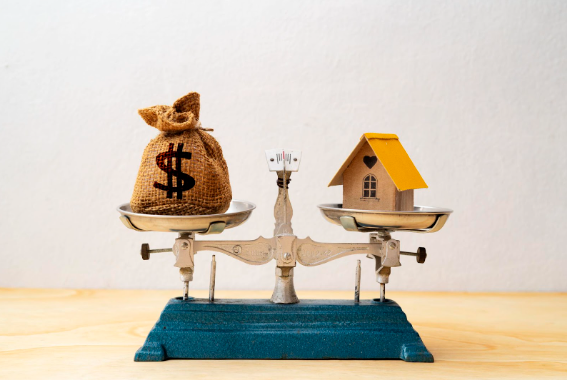
Is Using Home Equity to Clear Debt a Good Idea?
Owning a home isn’t just about having a roof over your head; it can also be a way to manage debt. But is it wise to pay off debt with home equity? Home equity is the gap between the value of your home and the amount you still owe. Consider that your house is worth $300,000, but you owe $200,000 on it. There is now $100,000 in equity. Specific loans or lines of credit can be used to borrow against this equity. What’s nice about that? This usually features cheaper interest rates than credit cards, and you only have to pay one bill instead of many. But, and this is a major but, if you can’t pay back, your home is at risk.
How to Use Home Equity
1. Home Equity Loans
When you choose this sort of loan, you use the property itself as collateral to borrow a set amount based on the equity you have in your house. The loan usually has a fixed interest rate, and this amount is provided in advance. This means that during the life of the loan, the principal and interest portions of your monthly payments will remain constant. This stability appeals to a lot of homeowners. A home equity loan’s proceeds can be used for a variety of things, such as renovations, debt consolidation, or major, unplanned bills.
2. Home Equity Line of Credit (HELOC)
A Home Equity Line of Credit functions more dynamically in comparison to the fixed nature of Home Equity Loans. It works similarly to a credit card, with the major difference being that your home’s equity serves as collateral. Your HELOC credit limit is determined by the amount of equity you have in your home. Instead of getting a single payment, you can withdraw money as and when you need it, up to this predetermined cap. HELOC interest rates are often variable, which means they might change depending on the state of the market. Since the interest rates are variable, even if you can borrow money as you need it, your repayment amounts may change over time depending on how much you’ve borrowed and the current interest rate.
3. Refinance (Equity take-out)

Through this method, homeowners may refinance their current mortgage for a sum greater than what’s still owed on it, and take out the extra income. The amount of equity that is available in a home increases as property values increase or as homeowners steadily pay off their mortgage. This equity can be accessed via refinancing and used for a variety of things. However, Canadian regulations place a cap on this borrowing, allowing homeowners to refinance just 80% of their home’s appraised worth, minus the outstanding mortgage balance.
The Risks to Consider When Using Home Equity
- Your home may be at risk: Your home serves as collateral, which is a basic risk at the core of this strategy. If you are unable to make the payments, the bank may be able to foreclose on your house and seize it. It’s an unsettling thing to think about.
- Hidden Fees: Many people are drawn in by the promise of low-interest rates, but hidden costs may also be present. Costs associated with closing, appraisal, and application can be much. It’s crucial to read the small print and ask questions.
- Temptation to overspend: Using home equity to pay off debts from the past could give one an unreal feeling of financial freedom. You run the risk of taking on more debt, which could leave you worse off than when you started.
- Interest rate variations: HELOCs and other home equity products, in particular, often have variable interest rates. Your budget may be put under stress if rates increase along with your payments.
Home equity is a risky area to enter, so be sure you’re ready. Although it can be helpful in some circumstances, it is not in all circumstances. Before making a choice, make sure you are well-informed, weigh the benefits and disadvantages as well, and don’t be afraid to consult an expert.
Conclusion

Using equity in your home as a source of funding can be a useful financial strategy for handling a range of needs. Whether through home equity loans, HELOCs, or refinancing—they all present both opportunities and liabilities. Although they offer reduced interest rates and the prospect of greater financial flexibility, it is important to proceed cautiously and fully understand the implications and dangers before making any decisions. Because every homeowner’s circumstance is different, what works for one homeowner might not be the best option for another. Analyze your financial situation before making any decisions.
Maybe you don’t need to put your home at risk after all. Why not speak with one of our debt experts at EmpireOne Credit? Our debt experts are friendly, and our services are confidential and free of judgments. Your debt can be reduced by up to 80%, and interest will stop immediately. Call us at (416) 900-2324 to schedule a free consultation with one of our debt experts. Being debt-free feels good!





